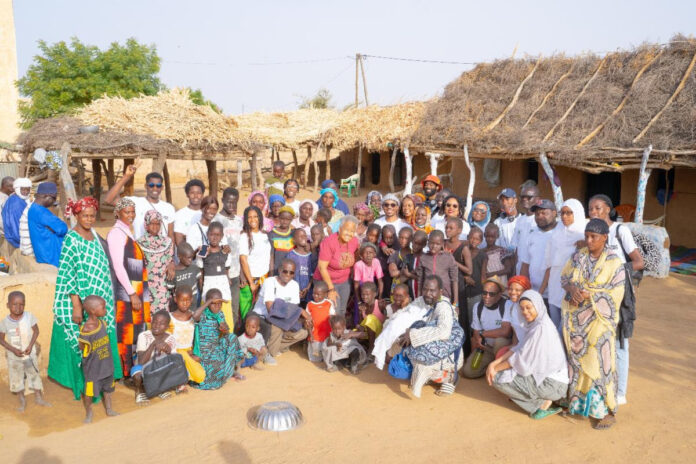( ENSPIRE Community Spotlight ) Students Spend Spring Break in Rural African Village to Serve the Vulnerable Communities That Are Most Impacted by Climate Change
ENSPIRE Contributor: Cailin Tennis
Amidst concerns about climate change and the future of our planet, it is so refreshing to see HBCU students taking positive action. A group of HBCU Green Fund Atlanta University Center Fellows recently dedicated their spring break to an African village on the border of Senegal and Mauritania. There, they participated in service activities such as building a tree shelter, planting trees, and digging a well. These ongoing efforts help the vulnerable communities, like this one, that are most impacted by the effects of climate change but contribute the least.
ENSPIRE is a magazine centered around positive media, and we aim to help enact positive change. By commending these students in their service efforts, ENSPIRE hopes to encourage other volunteers of all ages to help counter the effects of climate change. The spring break trip was a holistic endeavor to learn more about the climate crisis and help reverse it. The climate advocates spent a full week without Internet, TV, or phone service to help mitigate the devastating effects of global warming.

These students were part of the inaugural HBCU Green Fund Eco Spring Break Service-Learning Program at REDES Ecovillages. This program connects students, faculty, and alumni from Black colleges including Clark Atlanta University, Morehouse, and Spelman College, with students and faculty from Cheik Ante Diop University in Dakar Senegal. The Eco Spring Break Service-Learning program is one of several initiatives the HBCU Green Fund sponsors. They consistently cultivate relationships with local communities in the U.S., Africa, and throughout the African Diaspora to promote conservation, renewable energy, and sustainable agriculture and development.
The group currently has ongoing projects in 14 countries in Africa, including Ghana and Tanzania. These are two of the countries Vice President Harris recently visited and declared climate change an “existential threat to the entire planet.” With over 100 villages in Senegal and Mauritania, REDES Ecovillages helps traditional communities become ecovillages by blending deep-rooted culture with modern ecological and community-building methods. The program allows students to help with the climate crisis and learn innovative solutions the Africans have implemented. Programs like these are so important to the ongoing climate crisis because they provide the connections and resources necessary to start helping the planet.
The students and faculty on the excursion spoke highly of the experience and its life-changing impacts. Felicia Davis, founder of HBCU Green Fund said, “I’m so proud of these young leaders who put down their social media to live for a week with families in a rural village where electricity, water, and food were extremely limited. It was a game changer for young professionals who consider themselves to be climate justice advocates.”
Not only did this trip allow students to perform tangible service for these communities, but it also educated them about the intricacies of fighting climate change. Davis added that “The experience provided the volunteers with a deeper understanding of climate change, food waste, plastic pollution, and the devastating impact of wasteful western habits on distant communities along with an opportunity to make a real and tangible difference.”
Serena Echols, an HBCU Green Fund Fellow and senior environmental science major at Spelman College detail more about the experience. “It was a life-changing experience. We lived with host families sleeping on the floor just as they do. Our days consisted of working on various projects to help transform the villages of the Sahel. We also learned to milk a cow or a goat and planted over 100 trees.”
This exceptional act of service by the students and those supporting the HBCU Green Fund is something that will inspire students for generations to come. It’s up to everyone to take action to help our planet. As Davis says eloquently, “We gain as much or more than we give, it is powerful to function as a part of nature, as a steward seeking ecological restoration and balance.” To learn more about the HBCU Green Fund please visit their website.
Related Articles: HBCU Culture Annual Battle of the Bands and Scholarship Fundraiser Returns, Mustafa Ali Speaks at BIPOC Climate Justice Dialogue







